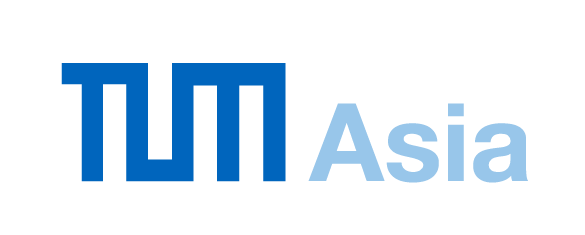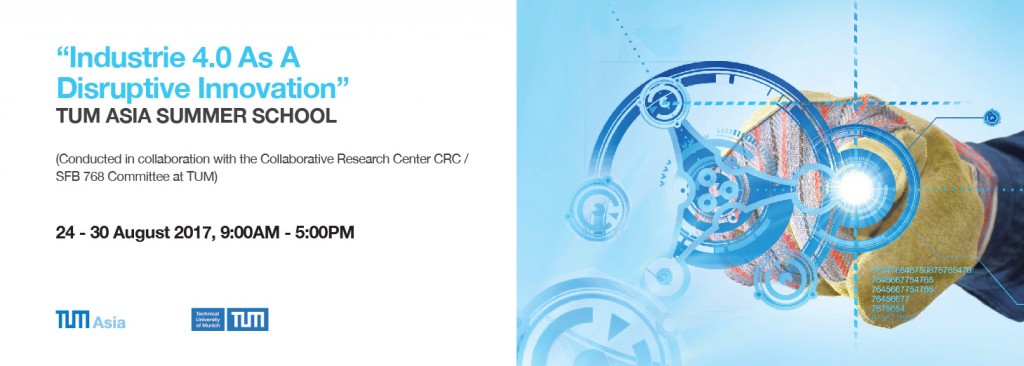“INDUSTRIE 4.0 AS A DISRUPTIVE INNOVATION”
This 5-Day Summer School Programme will comprise of a series of lectures, case studies and discussions conducted and facilitated by leading faculties in the “Industrie 4.0” domain from the Technical University of Munich (TUM) and the Otto von Guericke University Magdeburg.
The Summer School is conducted in collaboration with the Collaborative Research Center CRC / SFB 768 Committee at TUM.
PROGRAMME OVERVIEW
Through this Summer School Programme, participants will be able to gain an in-depth understanding on the key elements of the various technical aspects and socio-technical impact of Industrie 4.0.
The Programme will also address how these concepts can be applied across various industry verticals and participants will be able to demonstrate how this knowledge can be integrated and implemented at their own workplace.
PROGRAMME OBJECTIVE
- Equip senior management of local industries with key knowledge and insights relevant to Industrie 4.0.
- Encourage local industries to take the next step towards digitization and optimization of their manufacturing processes.
- Appreciate key Industrie 4.0 concepts, relate to their individual businesses and engage the trainers in effective discussions on the next steps to be adopted.
WHO SHOULD ATTEND
- Engineers, Professionals, Managers and Executives (PMEs)
- Middle to Senior Management Decision Makers
PROGRAMME MODULES
- Comparison of Industry 4.0, Internet of Things (IoT), Smart Factory, Smart Data
- Enabling Technologies (Agents, Modelling Notations for Automation, Cross Disciplinary Modelling & MES Level)
- Case Studies & Successful Demonstrators: Applying Enabling Technologies
- Smart Data Enabled Learning During Operation
- Security and Human in the Loop
- Digital Twin
- Automation ML
- OPC-UA for Engineering
- Runtime Description of Industrie 4.0 Components
- Introduction to Cyber-Physical Systems
- Approaches to Cyber-Physical Systems Design
- Industrie 4.0 Socio-Technical Framework I – III


